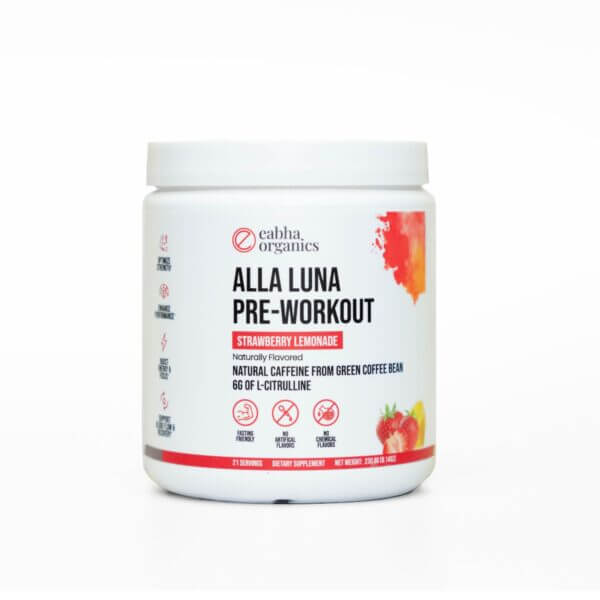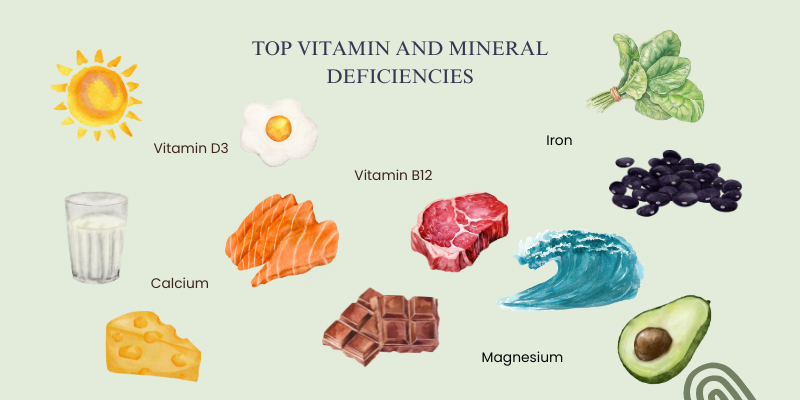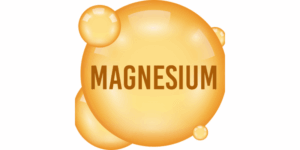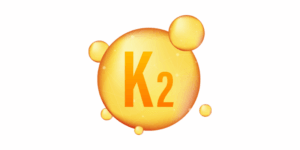Vitamin and mineral deficiencies have always been a problem in the US due to a lack of food and resources. But here in 2024, it’s a different story on why we lack key nutrients. Many Americans consume processed foods low in vitamins and minerals, causing us to face a growing nutrient deficiency issue. Here are some top vitamins and minerals we lack:
1. Vitamin D3
Vitamin D3 deficiency is common in the US, with an estimated 35-50% of Americans being deficient. This crucial vitamin plays a major role in maintaining good health. It’s important for:
- Bone health
- Strong immune system
- Mood regulation
- Muscle function
- Heart health
Try supplementing with 5,000 IU of vitamin D3 daily or spend more time in the sun to receive optimal amounts.
2. Magnesium
In the US, it’s estimated that over 50% of Americans have a magnesium deficiency. This is due to eating less nutritious, rich foods. Even if you’re eating the perfect diet, it can be difficult to meet the daily requirements. Try incorporating a high-quality magnesium supplement to help meet your goals. Magnesium is crucial to maintaining optimal health. It is good for:
- Muscle and nerve function
- Bone health
- Energy production
- Healthy heart
- Healthy hormones
3. Iron
Approximately 10 to 15% of Americans are deficient in iron. Women of childbearing age have a higher rate of deficiency due to blood loss during their menstrual cycle. Try to eat red meat 2 to 3 times a week. If you are vegan or follow a plant-based diet, consider taking iron supplements. Iron is important for various reasons, including:
- Maintaining a healthy pregnancy
- Oxygen transportation
- Preventing anemia
- Muscle function
4. Vitamin B12
Only 6% of the population is deficient in vitamin B12. However, if you follow a vegan diet or are older, this percentage increases significantly. If you fall into this category or simply do not incorporate enough red meat into your diet, try supplementing with vitamin B12. This vitamin helps with many processes in the body, such as:
- Red blood cell formation
- DNA synthesis
- Nerve function
- Maintaining a healthy pregnancy
- Optimal energy levels
As we know vitamin and mineral deficiencies are far too common today. Make sure that you are taking the right measures to keep your body healthy.
5. Calcium
Many people struggle with calcium intake, with about 40% of Americans not meeting the required amount. Certain groups are at a higher risk:
- Older adults
- Postmenopausal individuals
- People who are lactose intolerant
- Vegans
If you cannot increase your dairy intake, try supplementing with calcium. Here are some of the benefits of this essential mineral:
- Strong bones and teeth
- Muscle function
- Heart health
- Prevention of bone diseases
The Bottom Line
Vitamin and mineral deficiencies can have long-term effects on our health, impacting our hormonal balance, brain function, energy levels, and overall quality of life. Consuming a whole food diet rich in healthy carbohydrates, lean protein, and plenty of fruits and vegetables is the best way to prevent vitamin and mineral deficiencies. However, sometimes we may need additional support.
High-quality supplements can help fill in the gaps. If you suspect you have a vitamin or mineral deficiency, it’s important to confirm through a blood test. This will help you identify exactly what your body is lacking so you can take the necessary steps to improve your diet and overall health. Feel free to share this information with friends and family who may benefit from it!
Talk soon,
Eabha Organics









